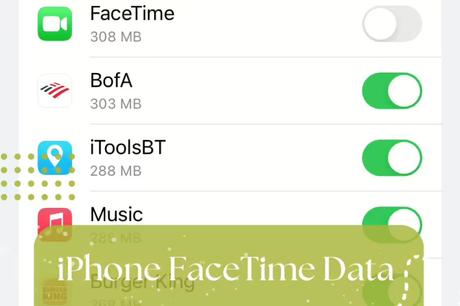
When you only have a limited amount of cellular data each month, it's usually a good idea to try and ration it.
A good way to do this is to limit the apps that can use cellular data, especially if it's something like FaceTime that can use most of it.
Our guide below will show you how to limit the FaceTime app to Wi-Fi only on iPhone so that it doesn't consume much of your cellular data.
How to turn off cellular data for the iPhone FaceTime app
- Open settings.
- Select Cellular.
- Scroll down and turn off FaceTime.
Our guide continues below with more information on how to prevent FaceTime from using cellular data on iPhone, including images of the steps.
Although many cellular carriers offer some type of unlimited cellular plan, there are usually some limitations and restrictions that are placed on this "unlimited" designation.
If you find yourself having problems using your cellular data on a monthly basis, you may be looking for ways to save that data for the things you really need.
One application that can consume a lot of data is FaceTime.
Video calls, like video streaming, require very large amounts of data. If you participate in many video calls with your friends, family, or colleagues, this can lead to your data being depleted.
Our article below shows you how to turn off cellular data usage for the iPhone FaceTime app so it stops using your cellular data.
Related topic: Are you recording your screen and want audio? Check out our guide on enabling sound for screen recording on iPhone to learn how.
How to FaceTime on iPhone with Wi-Fi Only (Guide with Pictures)
The steps in this article were performed on an iPhone 13 running iOS 16.
However, these steps were very similar for many iOS versions and many different iPhone models, so they should be the same if you're using the latest iPhone model and iOS version.
Note that after turning off cellular for the FaceTime app on iPhone, you won't be able to make or receive FaceTime calls unless you're connected to a Wi-Fi network.
These steps will show you how to prevent iPhone from using cellular data for the FaceTime app.
Now that you know how to prevent iPhone from using cellular data for FaceTime, you can save some data by not talking or making FaceTime calls when you're not connected to a Wi-Fi network.
The following section discusses some of the common questions people have about using FaceTime cellular on iPhone.
Frequently asked Questions
What other iPhone apps can use a lot of cellular data?
If you're going to be scrolling through the list of apps on your iPhone to try and limit the ones that use the most data, then a good place to start is video streaming apps and games.
Once you've turned off the cellular data option for them, another good idea is to check the line under each of the apps in the Cellular menu which tells you how much data those apps are using.
If there's an app that uses a particularly large amount of data and you can get by without using it on cellular, then you'll probably want to disable that as well.
How do I enable low data mode on my iPhone?
If you've heard of the Low Data Mode setting on your iPhone, you may have considered giving it a try to see if it helps you save cellular data.
You can find this option if you go to Settings > Cellular > Cellular Options > Data Mode > and then select Low Data Mode.
This helps reduce your mobile data usage by preventing a lot of automatic app updates and background tasks that use your data.
What is Low Power Mode on iPhone?
You may also be concerned about battery usage.
One option you can try to fix is called low power mode. This option changes a lot of your iPhone's settings to maximize your remaining battery life.
If you want to try this, you can turn on the Settings > Battery > Low Power Mode option.
You'll know it's on when the battery icon turns yellow.

